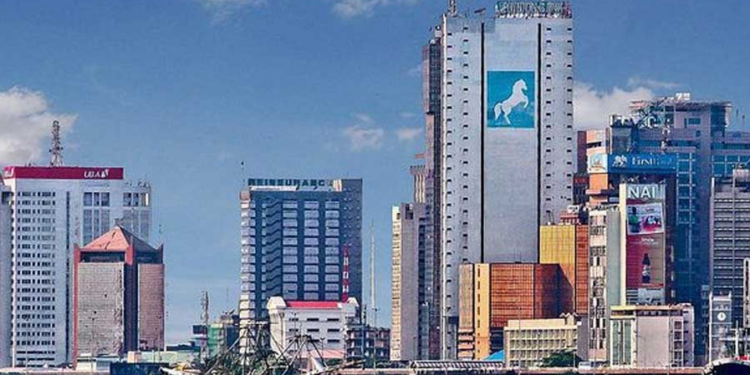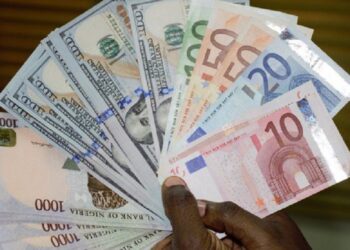As the value of the naira erodes on an almost daily basis, economists warn that the trend will affect the savings culture of Nigerians, and ultimately, impact the economy negatively.
Between June 2023 and February 13, 2024, the value of the naira has officially eroded by more than 220% and more than 100% on the parallel market.
Hence, economists warn that the trend will serve as a disincentive to saving. They say the trend may engender further inflation as savings reduce and ruin the wider economy.
Commenting on the likely implications of low savings in the banks, Professor Tayo Bello of Adeleke University noted that due to the evolving lack of confidence in the value of the local currency, Nigerians have resorted to storing their wealth in foreign currencies that are more stable. Besides, according to Bello, there is hardly enough to save as inflation is eroding people’s wealth daily.
Also speaking on the issue, the Chief Executive of the Centre for the Promotion of Private Enterprise, Dr. Muda Yusuf, stated that the erosion of the value of the naira will affect savings adversely. He noted that the naira is no longer serving as a store of value, which is one of the characteristics of money.
He stressed that fewer and fewer people are storing their wealth in naira, which is contributing to the dollarization of the economy.
He said many people are now storing their wealth in dollars, stocks, and gold, while other people are buying property just to preserve their wealth. He noted that the implication is that fewer people are inclined to store their wealth in naira.
Yusuf also cited that the banks serve as financial intermediaries hence, without adequate deposits; the banks’ capacity to give out credit and create wealth will be diminished. “If the banks are unable to lend, it will hurt investment, job creation, and economic growth,” he said.
An economic affairs analyst, Dr. Samuel Olaleye, also commenting, told Nairametrics that the erosion of the value of the naira presents a significant disincentive for savings among citizens, exacerbating financial insecurity and undermining long-term economic stability.
He stated that as the purchasing power of the naira declines due to inflation and currency depreciation, individuals find their savings eroded over time, leading to a loss of confidence in traditional savings mechanisms.
“Savings serve as a crucial tool for individuals to plan for the future, whether for emergencies, education, retirement, or investment opportunities.
However, when the value of savings diminishes rapidly, individuals are discouraged from setting aside funds for future needs. Instead, they may resort to immediate consumption or investment in assets perceived to retain value better than cash, such as real estate or foreign currencies,” said Olaleye.
Commenting on the implications of low savings, a financial economist at CashLinks Limited, Dr. David Echekoba, stated that the erosion of savings undermines confidence in the financial system and formal banking institutions. He said as individuals witness the diminishing value of their savings held in banks or other financial instruments, they may lose trust in these institutions’ ability to safeguard their wealth.
- “This can lead to reluctance to engage in formal financial activities, such as depositing funds or investing in financial products, further hampering economic growth and development.
- “The depreciation of the naira also has broader implications for the Nigerian economy as a whole. A weakened currency undermines investor confidence, deterring foreign direct investment and capital inflows. This hampers economic growth and development initiatives, constraining the government’s ability to fund critical infrastructure projects and social welfare programs. Additionally, the depreciation of the naira can trigger capital flight as investors seek to preserve their wealth by transferring assets abroad, further destabilizing the economy,” he stated.
Hillary Okorie, a financial economist, proffered that addressing the disincentives to savings resulting from the eroding value of the naira requires a multi-faceted approach. He said the government must prioritize policies aimed at stabilizing the currency, curbing inflation, and restoring confidence in the financial system.
- “This may involve implementing prudent monetary and fiscal measures, enhancing regulatory oversight, and promoting financial literacy and inclusion initiatives to empower individuals to make informed financial decisions,” he stated.

















